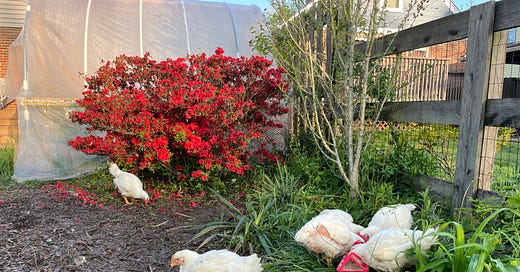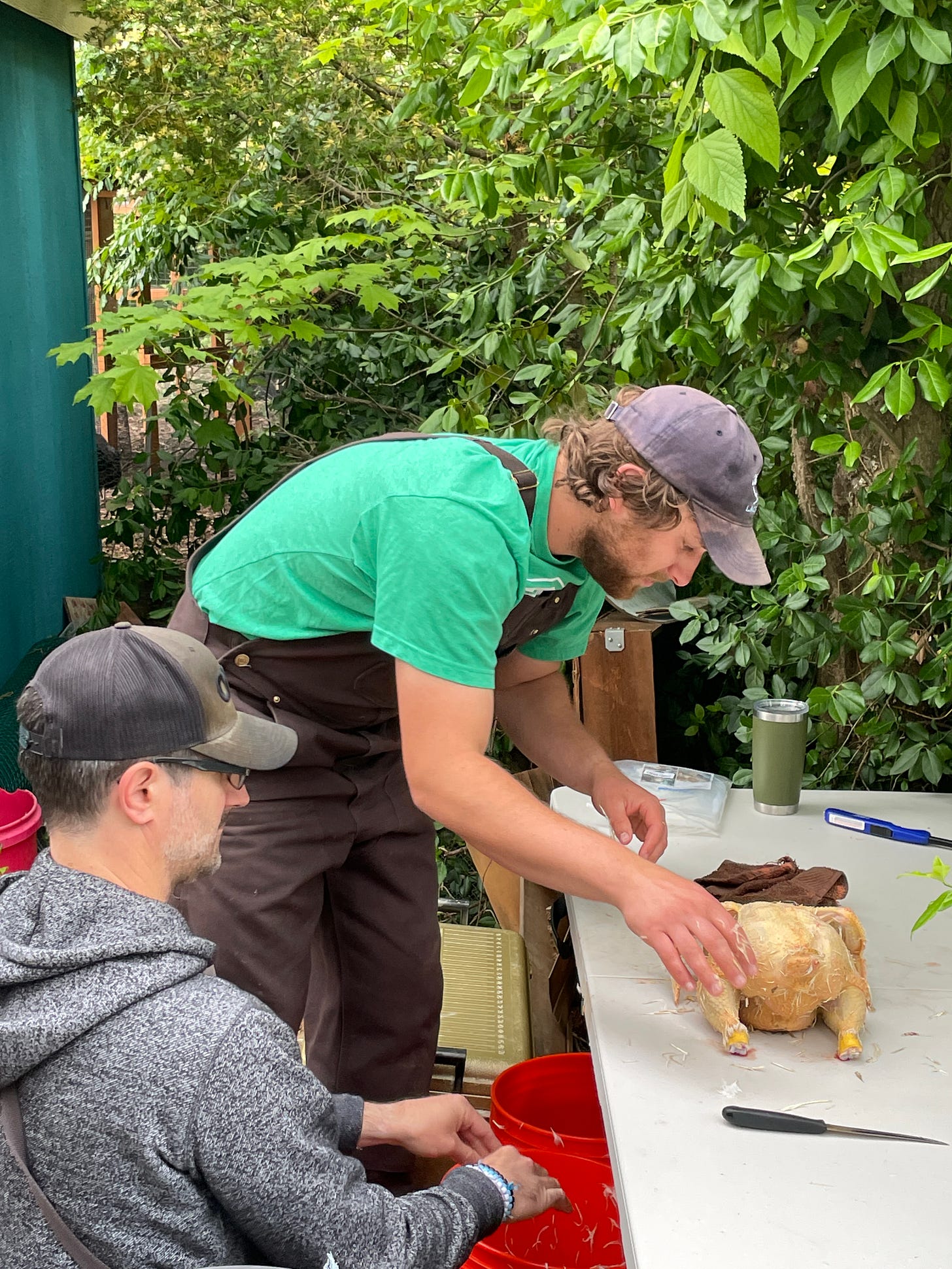A few weeks ago I had the opportunity to step back in time and take responsibility for the food my family was eating.
Our meat birds had reached the right age to be processed and sent into the next phase of their existence. It was a difficult but necessary moment. After reflecting on the entire timeline from day-old chick to being on our table, I can say that I’ve gained a lot of perspective. Meat has become a daily expectation for many of us and something I’ve always taken for granted.
In the days leading up, I had a bit of doubt. I had really come to enjoy these birds and their docile temperaments. They would follow me around begging for food and always allow me to pick them up. I never noticed them being pushy or flighty like other breeds can be. Overall, they were great additions to our flock.
But I also started to notice just how difficult it was getting for them to move around. It’s hard to describe just how fast these guys grow. They eat constantly and are roughly 5x the weight of a standard laying chicken at the same age. When they reached the end of the 8 weeks, I started to feel that processing them would actually be a strange kindness to them as their legs seem hardly capable of supporting their weight at this stage.
The day had arrived. I woke up at 5am Sunday morning to start prepping the work station: sharpening a knife, getting a huge crab pot of water boiling, filling a freezer with ice and setting up some buckets for blood, feathers, and organs. My friend who lived in the neighborhood (I had invited the day before!) showed up at 5:30 and we set to work on the first chicken.
Although last year I had helped a friend of mine process some of his chickens, it was largely observation. Neither of us had any experience doing most of the tasks involved. Before we started, we had a silent moment of prayer, thanking God for animal’s life and blessing the work. It felt right to do.
This shared understanding that we feel during the ancient and sacred act of taking an animal’s life is one of the most important benefits of this process. It seems to transport us from the mundane into some other transcendent space. One where we can fully recognize and wrestle with big concepts like life, death, and sacrifice. Somehow our position in creation becomes very apparent and the clarity is striking.
Later that Sunday as we drove to church, I got to talk with the kids about the experience. We talked about how death was sad but part of a more important larger cycle. That to have anything good there is always a sacrifice that involves the things we’d rather not think about. At the end of the conversation, we were all moved. It was a great family moment.
There have been so many good things that have come from raising our own meat. A short list would include ethically-raised/high quality nutrition, learning to care for animals, understanding life cycles and anatomy, developing community through the involvement of friends/family, re-discovering how to prepare/cook the real animal, and the space to think about the truly important points of life.
It wasn’t easy and, at times, I questioned why we were doing it. But I am now convinced that the convenience of our food system robs us in some significant ways. I’m thankful to have had this opportunity reclaim a small piece of responsibility for my food.






Great story. Your comment, is so true: "...the convenience of our food system robs us in some significant ways." I think convenience robs us of many opportunities to connect with the Earth in "real" ways. ( BTW, I can chop off the head of a fish, but I don't know about a chicken... :) )